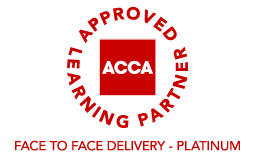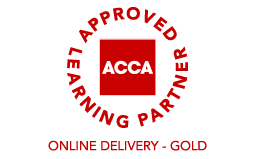Passing the Chartered Financial Analyst or CFA exam, regardless of the level, can be a crowning achievement you can boast about, since it is one of the toughest tests you can take to advance your career in finance.
Aside from having the distinction of passing one of the toughest finance exams, obtaining a CFA designation can give you better job prospects since you have a globally recognized qualification.
Completing the CFA exam with flying colors also gives you more career advancement opportunities locally and internationally.
However, the operative word is “passing,” which means you have to get the required scores to be awarded a certificate.
Top Tips for Acing Your CFA Exam
Regardless of the CFA exam level, you can have a higher chance of passing the test on your first try when you follow these tips:
1. Prepare for the exam early.
Most experts recommend test takers to start preparing at least six months before their scheduled CFA exam date. This translates to at least 300 hours of study time.
By preparing early, you’ll have plenty of time to learn new topics, re-learn ones you already know, and put them into practice.
Starting your preparations six months before the test can also give you some leeway if you need to reschedule your study sessions.
If you get the CFA exam details and review only a few weeks before the test, you are unlikely to retain enough information and are more likely to perform poorly.
2. Choose the right CFA program provider.
Preparing sufficiently for the CFA exam involves taking a comprehensive study program. As such, one of the first things you have to do is to look for a good training provider.
Go online to search for highly recommended and rated CFA course providers. Visit their websites and check if they have the necessary licenses, permits and accreditations to conduct training programs.
You’re also likely to find details about the program, tutors, and CFA course fees, so read up on them as well.
If you’re currently working, decide which study methods would work for you so that you can shortlist your options.
Generally, you have to choose among face-to-face or classroom learning, online, and blended study packages.
Lastly, get details regarding the study platform and materials so that you know the process and what you can learn from the program.
If you start early with the preparation stage, you’ll have enough time to choose the ideal CFA exam course provider that can help you get ready for the test.
Keep in mind that a CFA prep course helps you learn up-to-date information on the most important topics. Additionally, it lets you take several practice tests and learn how to manage your time more effectively.
Because of these reasons, you need to select the right CFA program provider from the start.
3. Create and follow a study plan.
A study plan helps ensure you maximize the time you have to prepare for the CFA test.
Create a study plan that lets you read, review, and apply what you’ve learned daily. Customize your schedule to ensure it suits your circumstances and learning pace.
If you’re taking a prep course, you’ll learn which topics carry the most weight from the CFA exam curriculum. Spend more time mastering them, but make sure you focus on the other subjects as well.
Your study plan should also include schedules for joining study groups and taking mock exams and frequent rests.
4. Use the learning materials efficiently.
Preparing for the CFA exam involves lots of reading during your training classes and self-study sessions.
To make the most of your preparation, you must know what to take away from the materials you read.
Most CFA reading materials have practice questions at the end of each section and the book or documents. Answer these questions and check your results to see how well you understand the topics and if you need to put in more time for studying.
Try to finish all your reading materials at least a month before the test, so you have enough time to take a few formal practice exams offered by your training provider.
5. Maximize your practice tests.
Whether you’ll take CFA mock exams provided by your training provider or use free ones you find online, use them to your advantage to have a better chance of passing the actual test.
Start by taking these practice tests under timed conditions. This means answering the questions within the recommended timeframe.
Avoid opening your reading materials or searching on the internet for answers while you’re taking the mock exam. Do this when you’re done checking the paper.
If you don’t understand why the answer is correct for a particular question, ask your tutor or research it online.
While taking these practice tests, use the calculator you plan to bring on the actual CFA exam. Also, apply the test-taking tips and techniques you learned from your study program, including reading the questions carefully, managing your time well and avoiding getting stuck on items you’re having difficulties with.
6. Don’t forget to take a break.
When you’re studying for the CFA exam, the vast amount of information you have to process can sometimes be overwhelming.
And this can cause you to feel overloaded and have difficulties understanding and remembering what you’re learning or reading.
When you feel you’re experiencing cognitive overload, take a 30-minute break to rest and reset your brain.
You should include taking frequent breaks in your daily study schedule to ensure you get that momentary rest and reset.
Keep in mind that most of the individual CFA exam questions and topics are usually not extremely difficult. What you may find challenging is the amount of information you have to study.
You can get more out of your CFA exam preparation by including breaks in your study plan.
Starting your preparations for the CFA exam is the most important tip you can follow. When you put in enough time to study, you can breeze through the test and have a higher chance of passing it.
Need a hand while preparing for your CFA test?
Get in touch with us to learn about our study program.



